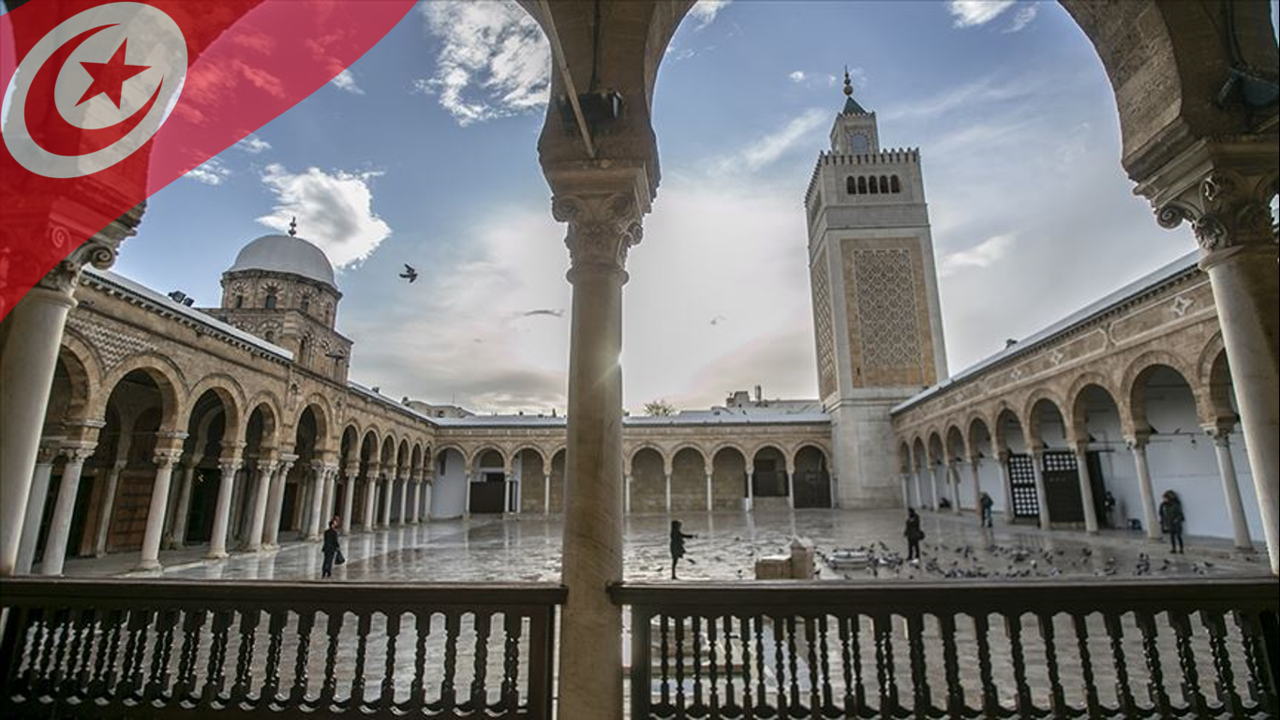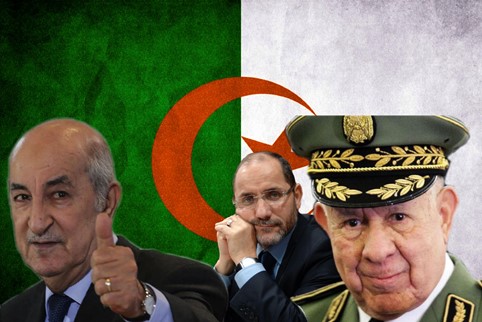Almost a week ago, on 12 June Algeria held legislative elections. This is the first time since the previous president, ‘Abd al-‘Azīz Bū Taflīqa has fallen in 2019 and the so-called reform process has started. After a long waited period these elections were supposed to mark a turning point ushering in a truly new era for the country.
The official narrative was that this election was supposed to seal the period of change and cleansing and start the perilous work of reconstruction. This was to give legitimacy to the new elite coming to power after the mass protests. The protests marked by the infamous Ḥirāk, the National Movement, which swept away the previous leadership. However, there were as many obstacles for the new rulers of Algiers, as important this step was.
The Ḥirāk lost much of its steam compared to what it was two years ago, though that is largely due to the Corona pandemic, it is still alive and Friday protests are still going on. The “new” reformed ruling elite never really managed to control his mass, regardless of the fact that officials embrace it. And as the old party elite was losing much of its fiefdom all over Algeria, there were considerable fears that the transformation will eventually benefit the Islamists once again. Which has a very dark legacy after the bloody ‘90s.
The real question, which everyone felt, but rarely anyone dared to say was, whether the decay of the state hierarchy will continue, or with this parliamentary election, the wounds start to finally heal.
The result, though for a while it seemed that the Islamists might even win, was anything, but surprising. Officially the National Liberation Front (FLN) won and gained an indirect, but comfortable majority. And so far the result is holding without resulting in huge turmoil. Yet the results, and even more the indications right before elections draw a different picture. Which is a worrisome notion for the whole region.
Perfect results
The legislative elections were promised practically ever since the Ḥirāk managed to topple the previous leadership. That was supposed to start the restructuring of the country’s political, economic, and consequently social composition. And probably that is why it was slowed by every possible way by President Tabbūn and the forces behind him. They needed time to prepare. Two things largely helped the establishment to postpone the elections as much as possible. First the Corona pandemic, and then President Tabbūn fell victim to the virus, requiring long treatments in Germany. The protest wave was not controllable, and just like the pandemic, it was not receding fast enough.
Eventually, on 18 February President Tabbūn dissolved the Parliament and scheduled for new elections. With this, the last remnants of the “old establishment” were on the way to go, though the new leadership was not in hurry to arrange the elections. Finally, the parliamentary elections took place on 12 June, and what was important, in complete calm. It was not disturbed by violence or massive protest waves. Though certain parties called for a boycott before, the majority favored the elections and it all went down well.
The two main questions were, whether the Islamists could break through this time or not and if the participants will be high enough. The latter was the real question.
Participation is the eternal problem of most Middle Eastern governments, especially if they are at odds with the West, as the result might be “controlled”, but it is hard to enforce much enthusiasm for them. However, if the turnout is high, just like last time in Syria that proves a governmental system and gives legitimacy to the whole structure. Which is even more important than the result itself.
Initially the Islamist “Society of Peace” claimed victory, yet the final official results on 17 June showed a largely different picture. According to these figures out of the 407 parliamentary seats the National Liberation Front – the former state party – gained 105 seats, which is a big falling for it. The independents gained the second most with 78, and the Islamists only came in third with only 64 mandates. Which is substantial, but very far from the majority. On the other hand, the former state party has a convenient primacy, it can count on most of the independents many of them being former state party officials, and has already received support from a number of smaller parties. The third and fourth parties to come in the race after the Society of Peace are two loose allies of the FLN. The National Block for Democracy gaining 57 mandates, a front for the military-led by former Prime Minister Aḥmad Ūyaḥyā – now in prison -; and the splinter of the FLN, its liberal wing, the Future Front with 48. So overall the FLN has a practical, though an indirect majority in the Parliament. Even more important the small “startup” parties of the Ḥirāk only gained a few seats, meaning they have become insignificant compared to the FLN.
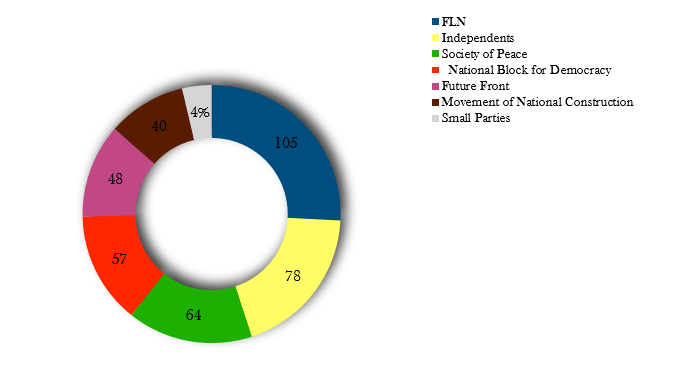
For a moment there was a real fear that the events of 1991 might repeat themselves, as the Islamists seemingly winning, only being denied of the fair victory in the last minute. In 1991 that resulted in widespread protests and eventually violence spiraling out into a decade in civil war. It could have happened this way. But now there was no major objection by the “Society of Peace”.
It seemed that the “trick” worked and the old elite managed to reconfigure itself in remodeled form. Which on its own is a major feat. But how stable this is?
Official reports like to ignore this aspect, but participation was all-time low with only 35%. Together with the low turnout in the recent referendum this year about amending the constitution, which had an equally low – and allegedly highly inflated ratio – this gives a very grim picture about the state elite’s real social support. Bū Taflīqa produced similar, slightly even better numbers and that system collapsed within weeks. And long before it was pointed out that one day the weak social involvement will sweep away Bū Taflīqa, which eventually happened. Tabbūn and his new-old establishment try hard to connect themselves to the Ḥirāk to boost their standing, but that is a very weak basis. And the signs were all very clear even before the elections have even started.
A never-ending feud
In so many counties of the Middle East, it is an axiom that the military-intelligence elite runs the state under the leadership of a monarch, or a president. That is so strong in Algeria that for long there is no one leader, only an elite group of generals.
The transformation after Bū Taflīqa was largely run by the Chief of Staff Aḥmad Qā’id Ṣāliḥ, and his task was taken over after his death by his successor, Sa‘īd Šanqrīḥa. The wind of change was felt even before Bū Taflīqa fell, as the previous leadership started to replace most of the generals. This continued under Šanqrīḥa and the arrests right before the elections reached even some of the most senior army leaders. This might create stability, but in the long run, this is an extremely risky approach. First of all, Šanqrīḥa being already 75 is not likely to last for a decade. Secondly, these actions might create open infighting, causing the army to split, or drag the county into infighting.
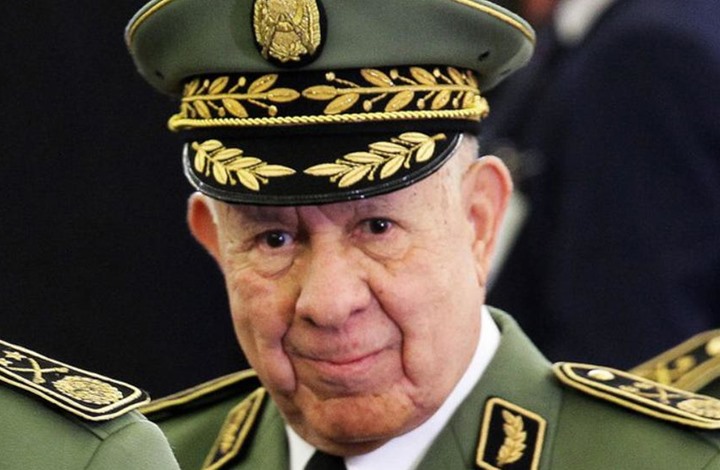
Considering that since the independence the army meant practical rule in the country, it is a very bad sign to see the lack of cohesion. Especially in days of a political crisis.
All in one interview.
Two little notions told volumes of just how delicate is the situation now in Algeria. First of all, as we saw, the biggest “enemy” of the elite in this election was participation. And that is an old foe. Yet right on the day of the election, President Tabbūn himself announced: “The ratio of participation is not important, only the legitimacy of those winning at the ballot boxes”. This is indeed a very curios view to take on democracy, especially from a leadership claiming its legitimacy on the will of the people.
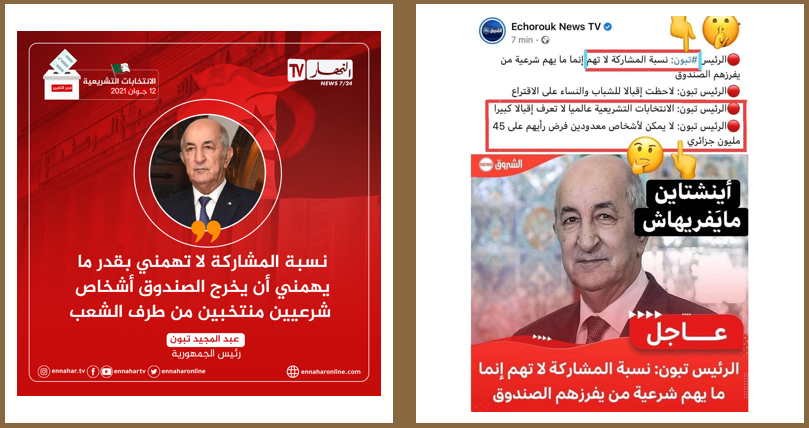
Yet even more surprising, and about the future even more worrisome, is that the President gave his last big “campaign” interview not to the national media, but to a foreign channel. And not just any channel, al-Jazeera. Since the so-called “Arab Spring” this Qatari network has a very bad reputation, mostly for its Arabic channel, its involvement in wars, and the incredible falsification and agitation it made in Egypt, Syria, Libya, and Yemen.
This is very well known in Algeria. Algiers faced that problem way before any other Arab country and was the first state to ban it in the ‘90-s for its agitation. The same tone was alive even during the “Arab Spring”. This time, however, the tone was astonishingly different.
The interview started with Tabbūn applauding al-Jazeera and securing that it has become a “supported channel” in Algeria. Within the many topics squeezed into less than half an hour one other interesting take on the elections was possible that the Islamists might take over. To that Tabbūn’s answer was that the Islamists mean no problem, because “the Islamists in Algeria are not like in other countries”. This is shocking after the result of the ‘90-s when a practical war was fought between the state and Islamist radicalism.
The interview was full of such notions, and the presence of al-Jazeera itself is alarming in Algeria. All that shows the emerging presence of Qatar in the county, which is largely due to Turkey’s growing influence. But it was never before seen so blatantly.
Why does Algeria matter?
Algeria on its own is the biggest Arab country by size, the second-largest Arab army, a massive – though gravely mismanaged – economy, and in a very strategic place. Simply just looking on the map it is easy to see Algeria is in the middle of a huge and very important region.
Strolling over the news of the region Algeria’s value is even more obvious, as it is surrounded by dangerously unstable countries. Libya, though showing signs of recovery and being on the right track is still very unstable. Tunisia is in a deep political divide and the rift is growing, Mali is in an endless circle of military coups and late last year Morocco normalized its relations with Israel, which may increase regional tension with a possibly growing Israeli presence in the region. Partly connected to that the struggle in Western Sahara is also increasing in the last year or so. A dispute, which became a matter of legitimacy for the new elite in Algiers on the one hand, but on the other a pushing factor for Rabat to obtain further American support for its quest with the normalization with Tel Aviv.
In the middle of this volatile region, Algeria already faces small-scale insurgency along its southern and eastern borders, a trans-Saharan migration crisis, and a rapidly shrinking economy, and now a political deadlock. So it really matters for the whole region whether Algeria is a stable and active stabilizing power in most regional problems, or an imploding giant, which might return to its bloody ‘90s attracting militants from all over the Middle East. If the latter befell that would mean a huge burden for all of its neighbors.
And this is met with an even bigger issue, the regional and global races for domination. On the regional level that means a growing presence for the Turkish-Qatari duo, as we saw. But on a global scale as well, Algeria has become a very valuable real estate.
The most important partner in this global monopoly in China for Algeria, which slowly overtakes France in all economic indicators and is becoming the county’s largest investor and infrastructure developer. One of the key projects in China’s practical overtake of the port of Skidka turning it into a massive oil and gas export hub. This Chinese presence so far only means business, but military presence might follow eventually, as most partnership plans are well into the 2030s. And that is a real concern for both the EU and NATO. All the more troubling this is because Russia as well is already heavily present in Algeria. Early in mid-2020, there were indications of possible Russian military bases, or bases in Algeria. Though Algeria officially refused this offer, after the Moroccan normalization and the eruption of the Western Sahara case once again Algiers allegedly reconsidered this opinion and there are indications of a joint naval base in Oran, uncomfortably close to the NATO-American base in Morocco.
So in such a race, being an intersection of both regional and global ambitions, having a huge army a sizable population, and immense oil and gas reserves it is a very important question whether Algeria implodes, or becomes once again a stable partner. And if so, whose friend it shall be?
That is why the Algerian elections, though not being any less controversial as most regional elections held in the region in these months, got little attention. So far Algiers for a green light and got away with its “trick”. That, however, does not mean that it is not being watched very closely. And it should be.

